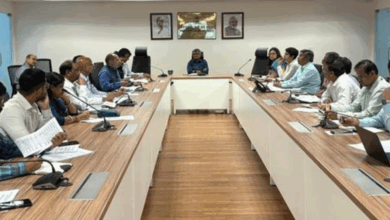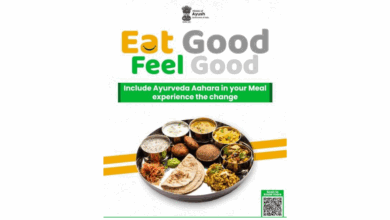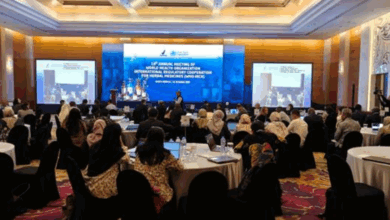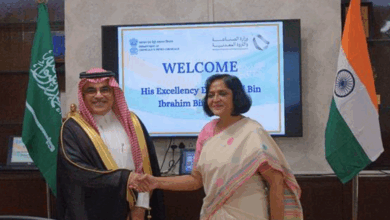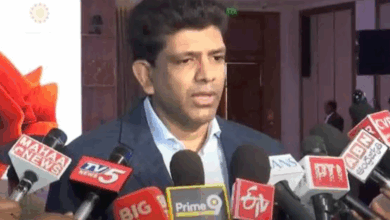NITI Aayog CSE and release ‘Waste-wise cities’ – compendium of best practices in municipal solid waste management

NITI Aayog Vice Chairperson Dr Rajiv Kumar, CEO Amitabh Kant, Special Secretary Dr K Rajeswara Rao, and CSE Director General Sunita Narain jointly release the report
Waste-wise Cities: Best practices in municipal solid waste management – a comprehensive knowledge repository of how Indian cities are managing their solid waste – was released on 6th December by NITI Aayog vice-chairperson Rajiv Kumar, CEO Amitabh Kant and special secretary K Rajeswara Rao, along with Sunita Narain, director general, Centre for Science and Environment (CSE).
India’s solid waste management sector has witnessed unparalleled growth in the last few years. The Swachh Bharat Mission Phase 2 is launched to further strengthen the efforts for a clean India. The report, titled ”Waste-Wise Cities: Best Practices in Municipal Solid Waste Management”, documents best practices from 28 cities in 15 states of India. The new report is the result of a country-wide study and survey jointly conducted by NITI Aayog and CSE.
The repository is the result of five months of extensive on-ground collective research that was initiated in July 2021. The entire gamut of municipal solid waste management has been seen from a cross-section of 10 different aspects that explains a sustainable value chain. These thematic aspects range from source segregation, material recovery and technological innovations to the management of different kinds of wastes and systems such as biodegradables, plastics, e-waste, C&D waste and landfills.
Dr. Rajiv Kumar, Vice-Chairperson, NITI Aayog said “Looking at the future of Indian development where urbanisation is going to be the key and cities will be the driving force of economic growth, implementing efficient waste management systems in cities is extremely important. He further emphasised “Jan Andolan for Swachhta is very essential, where everybody is involved and understands the importance of source segregation and overall waste management operations. He further added, “With extensive mass communication for behavioural change, every city can and must aspire to become Indore.
It is also important that these best practices are referred and adapted by tier 2 and tier 3 cities.” He also highlighted that “Frontier technologies have to be used for converting waste to the highest form of energy.” He added, “ The key to achieving zero waste cities is to strengthen governance capabilities especially in the municipalities and other ULBs.”
Report documents best practices in 28 cities from 15 states – from Leh in Ladakh to Alappuzha in Kerala, from Indore in Madhya Pradesh to Dhenkanal in Odisha, and from Gangtok in Sikkim to Surat in Gujarat
Shri Amitabh Kant, CEO, NITI Aayog, Efficient management of solid waste will be India’s key challenge in its rapid urbanisation story. He stressed the need to promote source segregation and circularity in waste management as business practices along with necessary rules and regulations. He further added that cities need to become the agent of change in this sector for a smooth transition to a circular economy.
Dr K. Rajeswara Rao, Special Secretary, NITI Aayog said that the book is a knowledge repository compiling success stories of 28 cities across the country that achieved remarkable progress in various areas of waste management. He emphasised that urban local bodies across the country should have access to knowledge resources that present strategies for different components of the waste management service chain. He highlighted the key learning from the best practices including, behaviour change communication, source segregation of waste, innovative models of circular economy, advanced data management and technology like GIS tracking of waste transportation vehicles etc.
Sunita Narain, who directed the research along with Rajeswara Rao, said: “The Swachh Bharat Mission (SBM) 2.0, launched on September 1, 2021, is now based on a clear strategy for solid waste management in cities – a strategy that focuses on source segregation, material reprocessing, and zero-landfills. This change needs to be recognised and disseminated so that waste does not add to contamination and become a public health menace. Waste should become a resource to be reworked, reused, and upcycled.
The compendium is a resource for developing cities to get new ideas, learn about the strategies, institutional arrangements, technologies and implementation modalities that have made things possible for some of the cities to emerge as stand-out performers. These cities could well be a learning laboratory through exposure visit and the evidence need to be showcased at appropriate forum and scale to reach the masses.
NITI Aayog and CSE will jointly host workshops to disseminate the learning with cities across the nation.
Download the full report here: https://www.niti.gov.in/sites/default/files/2021-12/Waste-Wise-Cities.pdf
Disclaimer : This is an official press release by PIB.



